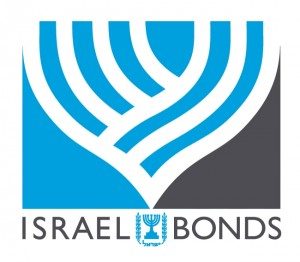 The Israel Bond Organization produced a total of $432,958,900 in cash in 1981 for Israel’s economic development, marking the seventh consecutive year in which its cash receipts have shown an increase over the previous year, it was announced by Sam Rothberg, general chairman.
The Israel Bond Organization produced a total of $432,958,900 in cash in 1981 for Israel’s economic development, marking the seventh consecutive year in which its cash receipts have shown an increase over the previous year, it was announced by Sam Rothberg, general chairman.
The $432,958,900 in cash received by the end of December 31, was the largest annual amount in the 30-year history of the Bond Organization with the exception of the year of the Yom Kippur War (1973), he said. Last year’s receipts brought to more than $5.5 billion the funds channeled by Israel Bonds into Israel’s Development Budget since 1951. Of this total more than $2.7 billion has been repaid by the State of Israel. In 1980 the Israel Bond Organization’s sales amounted to $421,961,000.
Rothberg pointed out that the record results of 1981 were achieved “despite the unusually high interest rates and the unfavorable economic conditions which prevailed in the United States and other free world countries where Bonds are sold.” A New Responsibility
A new responsibility assumed by the Israel Bond Organization in 1981 was the inauguration of a special effort to provide the seed money for the construction of a Canal linking the Mediterranean and the Dead Sea for the purpose of producing hydroelectric power, which would help solve Israel’s energy problems and reduce its dependence on imported oil.
“In addition to wide Jewish community support,” Rothberg reported, “the 1981 sales reflected a continuing increase in participation by the general community including key elements in business and labor as a demonstration of confidence in Israel’s economic future.” He expressed appreciation “to the many Jewish community leaders whose devoted efforts were chiefly responsible for the encouraging results of 1981.”
Rothberg declared that in 1982 Israel Bonds will play a vital role in helping finance the infrastructure for an expanded program of growth in the Negev which will be Israel’s only remaining large area for development after the evacuation of the Sinai is completed in April.
“Proceeds from Israel Bonds will be needed to establish new industries, expand existing urban centers and build new towns in the next few years. Creation of a network of transportation and communication will be required to link new areas of settlement and industrial growth with the rest of the country,” Rothberg said.